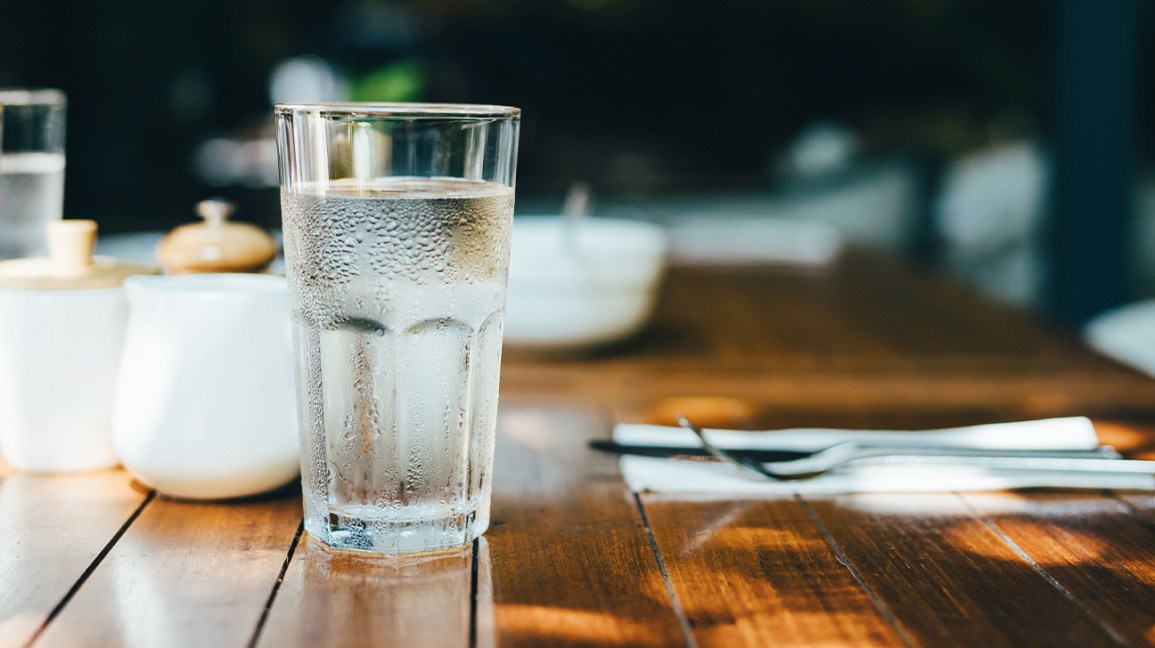August 2 marked the beginning of the Australian Dental Association’s Dental Health Week. One of this year’s key messages: your teeth are for life, so look after them. Many oral health issues that require a trip to the dentist can be avoided with healthy habits. It may surprise some, but changes to our lifestyles brought about by the pandemic lockdowns present unique oral health challenges. Many of my patients ask me for advice on this so I thought I would share some simple ways to maintain your oral health during these unusual times. Don’t overlook good oral health routines. With many of us working or schooling from home it is easy for our regular daily routines, including oral health, to slip. Look at it this way: you now have extra time in the morning and evening to brush your teeth properly for two minutes, angling the brush at 45 degrees to the gum margin. Snack wisely. We are more susceptible to frequent snacking when housebound. Avoid sweet snacks; bacteria in your mouth thrive on sugar and when they multiply they make more acid, which softens the enamel on your teeth and makes them more vulnerable (‘acid wear’). Swap sweet snacks, especially if sticky or chewy, for more Drink wisely. Drinking water with and after meals is recommended to dilute food’s natural sugars and acids and wash away trapped food. Drinking water has the added benefit of increasing salivary flow, improving your natural resistance against tooth decay. Tap water is preferable to bottled, as fluoride in tap water protects and When in lockdown or working from home, we may find ourselves reaching for that bottle of wine a little more than usual. Alcoholic drinks are generally acidic with high sugar content. Some alcoholic drinks, especially red wine, also cause staining. Spirits can dry the mouth and reduce saliva flow. So it is important to drink water along with our chosen tipple to improve salivary flow and dilute the sugars and acids – which also helps us keep hydrated and avoid that dreaded hangover! We are also drinking more tea and coffee throughout the day during lockdown. These beverages themselves don’t damage teeth, but any added sugar can. Try slowly reducing the amount of sugar in your tea or coffee until you get to zero – many patients tell me it’s easier than they anticipated! While the tannins in tea and coffee (and red wine) can cause surface staining, this can easily be removed by a regular scale and polish by your dentist. Be aware of stress. On top of the general anxiety caused by the pandemic, we’ve had to cope with new working conditions and staying indoors over extended periods. Stress impacts every system of our body, and our teeth are no exception. People who are very stressed may find themselves with problems like teeth All this time we are spending at home is ideal for forming good habits and I hope you find the tips above helpful. It is also a good time to pick up that phone and make an appointment with your dentist. Visit our website at dentalrooms.net.au to take advantage of our New Patient Package and check out our Instagram for hygiene and nutrition tips. We look forward to seeing you soon. Stay safe. Dr Bal Bahra |


_(cropped).jpg) Choose a soft-bristled brush and fluoridated toothpaste instead of harder bristles or harsher ‘tooth whitening’ or ‘charcoal’ toothpastes. Brushing only cleans around 60 per cent of your tooth surface, so conclude your evening routine with dental floss or interdental brushes to reach the rest. You may notice some minor bleeding but this will subside in a week or two if you persevere. Brush your tongue too (or use a tongue scraper) to reduce the bacteria that grow there and complete your routine with a mouthwash. For more information, see the video on brushing and flossing technique on our Instagram
Choose a soft-bristled brush and fluoridated toothpaste instead of harder bristles or harsher ‘tooth whitening’ or ‘charcoal’ toothpastes. Brushing only cleans around 60 per cent of your tooth surface, so conclude your evening routine with dental floss or interdental brushes to reach the rest. You may notice some minor bleeding but this will subside in a week or two if you persevere. Brush your tongue too (or use a tongue scraper) to reduce the bacteria that grow there and complete your routine with a mouthwash. For more information, see the video on brushing and flossing technique on our Instagram  tooth-friendly alternatives: nuts, carrots, cucumbers and other vegetables. Fruit is healthy but a piece of fruit is better than fruit juice, and either is better at mealtimes than as a snack. Saliva helps protect teeth from erosion, so drink water and chew sugar-free gum after meals to promote saliva flow. Try and shop healthy; with fewer temptations at home you are more likely to choose the healthy option! Visit our Instagram for more tips on a tooth-friendly diet.
tooth-friendly alternatives: nuts, carrots, cucumbers and other vegetables. Fruit is healthy but a piece of fruit is better than fruit juice, and either is better at mealtimes than as a snack. Saliva helps protect teeth from erosion, so drink water and chew sugar-free gum after meals to promote saliva flow. Try and shop healthy; with fewer temptations at home you are more likely to choose the healthy option! Visit our Instagram for more tips on a tooth-friendly diet. strengthens teeth. Some soft drinks can be detrimental to dental health: a can of sugary soft drink may contain up to 10 teaspoons of sugar; and carbonated soft drinks can also be quite acidic. Choose water or milk instead. Try flavouring a jug of tap water with fresh mint or a few slices of fruit and keep it in the fridge so you have a drink to hand when you want it.
strengthens teeth. Some soft drinks can be detrimental to dental health: a can of sugary soft drink may contain up to 10 teaspoons of sugar; and carbonated soft drinks can also be quite acidic. Choose water or milk instead. Try flavouring a jug of tap water with fresh mint or a few slices of fruit and keep it in the fridge so you have a drink to hand when you want it. grinding, dry mouth, oral ulcers, or jaw joint pain. Stress weakens the body’s immune system, making it more susceptible to infections that can cause gum disease. It is not always easy to control stress levels, but making small changes to our lifestyles – exercising more, meditating, winding down with a good book or a TV comedy, getting enough sleep – can help to improve our mental state overall. I often see patients with jaw pain and tooth wear caused by stress-related jaw clenching or teeth grinding, and in such cases a custom-made mouthguard can help.
grinding, dry mouth, oral ulcers, or jaw joint pain. Stress weakens the body’s immune system, making it more susceptible to infections that can cause gum disease. It is not always easy to control stress levels, but making small changes to our lifestyles – exercising more, meditating, winding down with a good book or a TV comedy, getting enough sleep – can help to improve our mental state overall. I often see patients with jaw pain and tooth wear caused by stress-related jaw clenching or teeth grinding, and in such cases a custom-made mouthguard can help.